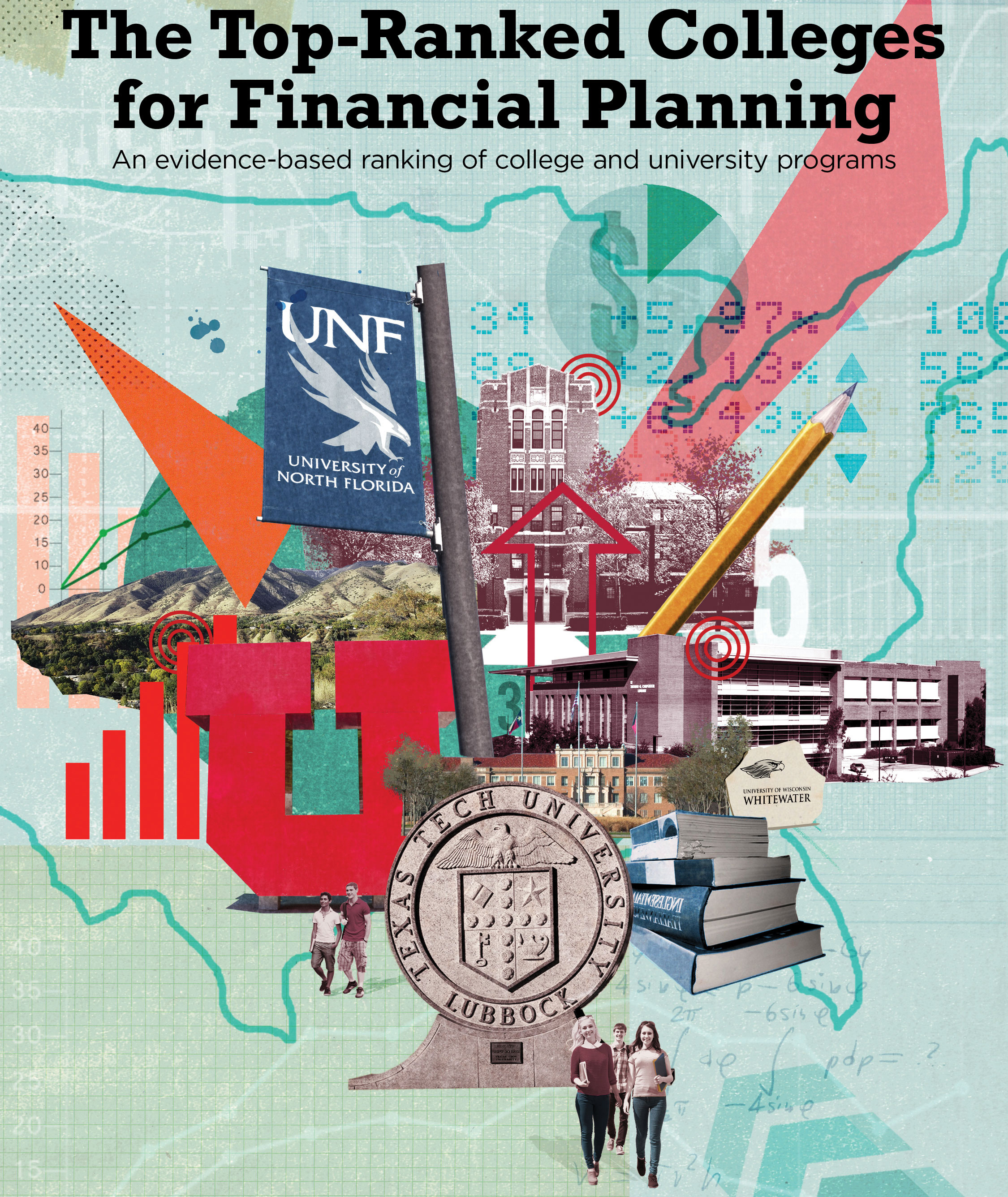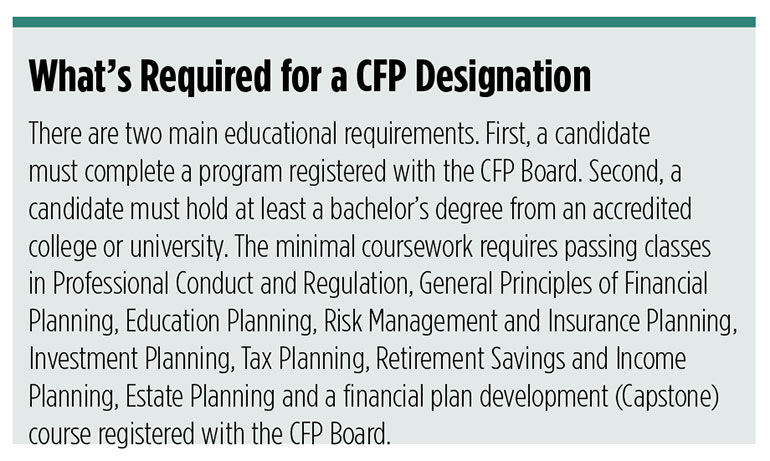
Which schools offer the best on-campus, degree-granting programs that prepare students for careers in financial planning?
WealthManagement.com decided to find out. This ranking represents the first ever data-centric approach to measure the nation’s financial planning programs offered at colleges and universities. (The survey is limited to degree-granting, on-campus programs. Wealth Management will evaluate online, distance-learning certificate college programs in a follow-up study.) WealthManagement.com ranked these programs based on a weighted matrix of nine indicators believed to be markers of excellence. (See Methodology)
About 330 four-year colleges and universities in the U.S. offer on-campus programs that lead to some form of degree in financial planning. Of that number, only 191 colleges are registered by the CFP Board as being sufficiently rigorous to qualify students to successfully complete the program and sit for the exam to obtain the coveted CFP designation. All the programs ranked by this magazine are registered by the CFP Board.
 Programs leading to a financial planning degree are a relatively recent addition to institutions of higher education. Similar in rigor to finance and economics programs, personal financial planning programs focus less on markets and macroeconomics and more on an individual’s relationship with investments, risk management, taxes, estate planning, retirement and insurance, among other topics. These programs most commonly produce students graduating with a Bachelor of Arts or a Bachelor of Science degree in financial planning. Also common are students graduating with finance degrees with a concentration in financial planning. Some offer a Master of Arts or Master of Science or, rarely, a doctoral degree in financial planning.
Programs leading to a financial planning degree are a relatively recent addition to institutions of higher education. Similar in rigor to finance and economics programs, personal financial planning programs focus less on markets and macroeconomics and more on an individual’s relationship with investments, risk management, taxes, estate planning, retirement and insurance, among other topics. These programs most commonly produce students graduating with a Bachelor of Arts or a Bachelor of Science degree in financial planning. Also common are students graduating with finance degrees with a concentration in financial planning. Some offer a Master of Arts or Master of Science or, rarely, a doctoral degree in financial planning.
The CFP Board registers programs that require students to complete a minimum number of courses, as well as a Capstone course that demonstrates a student’s ability to develop and deliver a comprehensive financial plan. Only students completing a course of study in these registered programs are eligible to sit for the CFP certification exam.
The WealthManagement.com rankings reward programs that offer electives above and beyond the minimum number of courses required and feature a Capstone course taught by a professor
who has earned the CFP certification.
 Most of the financial planning programs will give students a satisfactory grounding in the fundamentals of financial planning—not all programs are equally well positioned to prepare students to pass the CFP examination. Students cannot sit for the CFP exam until the school issues a verification of completion of the coursework requirement.
Most of the financial planning programs will give students a satisfactory grounding in the fundamentals of financial planning—not all programs are equally well positioned to prepare students to pass the CFP examination. Students cannot sit for the CFP exam until the school issues a verification of completion of the coursework requirement.
Our survey methodology takes into account the school’s self-reported number of CFP completions. The CFP Board does not release the pass/fail rate from individual educational programs.
The Top-Ranked Programs
All of the four-year college programs ranked here are quality programs focused on preparing students for careers in financial planning. Nonetheless, there are noteworthy differences among them. The top-ranked programs generally have a mix of the following criteria: a high ratio of faculty who have themselves earned CFP credentials; larger faculties as measured by full-time equivalents (FTEs); offer electives in finance beyond the minimums designated by the CFP Board; and report a higher number of completions to the CFP Board.
John Kador is a business author and frequent contributor to Wealth Management. Katie Tschida, a recent graduate of San Diego State University, is beginning her career as a Wealth Advisor Associate at a national financial services firm.


